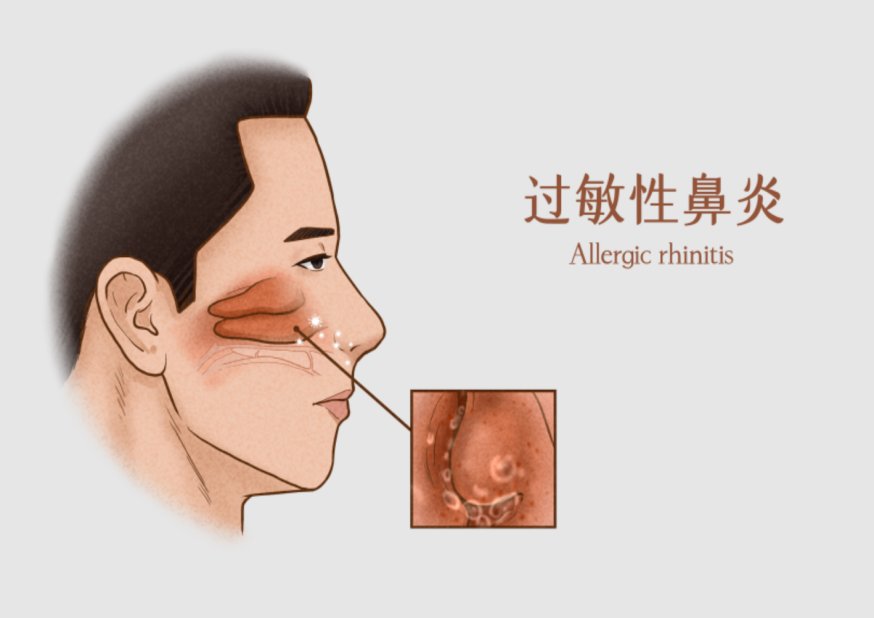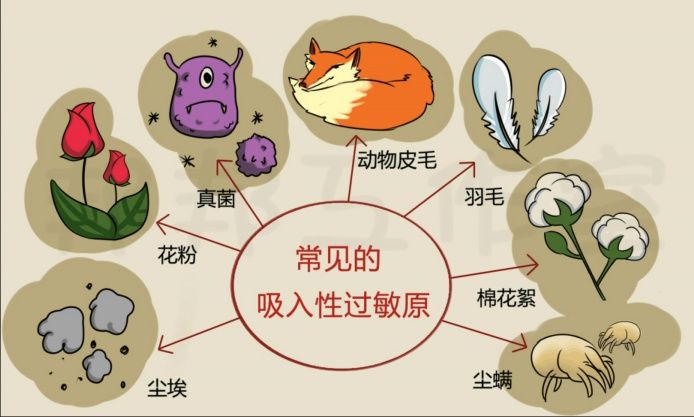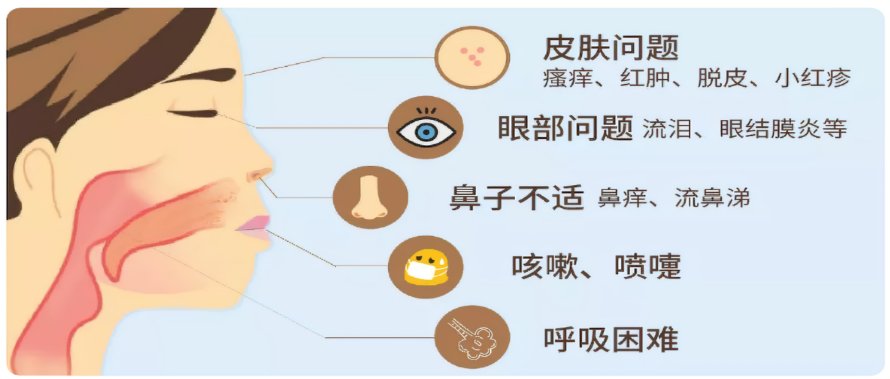As the saying goes, after Laba is New Year, after New Year is Spring.
Recommended doctor: Wang Tong
Many friends, who have survived the cold and dry winter, have not had time to get rid of the “red nose”, and will soon face the ravages of bacteria and viruses, diseases The frequent alternating seasons of winter and spring are “head-to-head” with influenza and viruses.
Not to mention the nasty allergic rhinitis in the pollen season that follows. After a year, there are always a few months when our noses are not so comfortable.
01
Allergic rhinitis is old and bad, don’t delay it
Allergic rhinitis, also known as allergic rhinitis, is an allergic disease of the nasal mucosa , is a symptom of rhinitis caused by the immune system being affected by allergens in the air.

The initial symptoms of allergic rhinitis are similar to a cold, with itchy, stuffy, sneezing and runny nose. The situation is easily ignored by everyone and treated as a common cold.
What’s more, if I don’t take injections or take medicine, I feel that I am in good health, and I think that these “minor symptoms” are not serious, and they will pass after a long time. As everyone knows, minor illnesses cannot be cured into serious illnesses.
If allergic rhinitis is not handled properly, there will be serious consequences, such as asthma, sinusitis, nasal polyps, pharyngitis, otitis media, conjunctivitis, etc. Over time, it will even develop into a “systemic disease”. “.
No.1
Asthma
Allergic rhinitis is one of the main factors of asthma attacks. According to survey statistics, 40% of allergic rhinitis patients There is asthma, and perennial asthma can lead to emphysema and cor pulmonale.
No.2
Sinusitis, nasal polyps
Chronic allergic rhinitis will cause the patient’s nasal mucosa to be in a state of edema for a long time, and repeated nasal mucosa Edema will lead to the formation of nasal polyps, which will block the nasal cavity over time, as if a “plug” has been added to the nose, the drainage is not smooth, and the pressure in the sinus area will increase. inflammation.
No.3
Pharyngitis, otitis media
The ear, nose, and throat are connected, and the throat of patients with rhinitis is prone to edema and inflammation, which leads to the negative impact of the ear tympanic chamber. Otitis media develops due to pressure, exudative fluid from the middle ear.
Therefore, when you have symptoms related to allergic rhinitis, you must seek medical attention in time, and do not turn a “minor illness” into a “serious illness”.
02
Keep away from allergens
Allergic rhinitis, as the name suggests, is rhinitis caused by allergies.
Since there is an allergic reaction, there are naturally substances that cause us to have allergic symptoms. These substances are collectively referred to as allergens.
The first category is inhalation allergens.

Such as dust, dust mites, feathers, pollen, cockroaches, animal fur, ragweed, mugwort, etc., these are Common inhalation allergies.
The second category is ingestion allergens.

Such as eggs, peanuts, soybeans, milk, fish, shrimp, crab, beef and mutton, etc., everyone is allergic to food It’s no surprise.
The third category is environmental reasons.
Environmental changes such as too cold climate, too humid air, and strong light may also stimulate the nasal mucosa and cause allergies.
Generally, if the allergen is not cut off, in addition to sneezing, runny nose and other symptoms, the patient may also experience eye discomfort such as tearing and conjunctivitis, or skin itching, redness, and peeling. There may even be symptoms of difficulty breathing.

So if you find yourself with allergen rhinitis, you must stay away from allergens to prevent symptoms from getting worse under frequent stimulation.
03
Seasonal change is coming, protection is the first
Winter is coming to spring, and a new round of pollen season is coming, allergies The people with rhinitis are about to usher in a “new storm”, so what measures can help them face the upcoming March?
First of all, it is to stay away from allergens. People who are allergic to pollen can reduce the number of times they go out. If it is unavoidable to go out every day, they can also wear a mask to isolate impurities in the air and reduce contact with the air. Chances of allergen exposure.
Some friends can use normal saline to rinse the nasal cavity to keep the nasal cavity clean and moist, and at the same time, it can also flush out the allergens in the nasal cavity to a certain extent, thereby improving the symptoms of rhinitis.
Finally, medication can also be used.
Currently, the drugs for the treatment of allergic rhinitis are mainly glucocorticoids, which can effectively improve the symptoms and let everyone get rid of the troubles of rhinitis.
However, no matter how good the medicine is, it should be used under the guidance of a doctor.
Correct and scientific treatment methods are the reasonable measures we should take in the face of allergic rhinitis.
This article is produced by Jingdong Health Internet Hospital
Responsible editor: Guo Haiyan